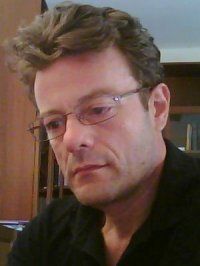Four reasons to choose the MA in Ancient Philosophy at The University of Oslo
There are many MA’s in Ancient Philosophy. Here are four reasons to choose Oslo’s.
It’s free
The University of Oslo in unique in charging no tuition fees for the MA, irrespective of nationality.
The advantages of a two-year MA
The advantages of a two-year MA. Other programmes typically last 9-12 months. This leaves little time for writing a thesis or to prepare for PhD studies. In the second year at Oslo you write a thesis of up to 100 pages receiving 18hours of supervision.
The two years also allow you to develop the research skills you need for a PhD project, for example, knowledge in ancient and modern languages, or of particular areas in philosophy and classics.
The depth and breadth of our expertise
Whatever your interest in ancient philosophy you will find a specialist teacher here. We have a team of six permanent professors in ancient philosophy, whose expertise ranges from early Greek philosophy, through Plato, Aristotle, and Hellenistic philosophy, to late ancient Pagan and Christian philosophy.
Since the course is taught within an Institute for Philosophy, Classics, and History of Ideas you will also have the opportunity to explore interests in an unusually wide range of subjects related to ancient philosophy.
Travel opportunities
Unlike other MA’s, our MA offers the opportunity to spend a semester abroad. The Department has exchange agreements with a number of top universities in Europe and North America.
High quality teaching
Ancient Greek philosophy marks the starting point for the Western philosophical tradition. It is a subject of research worldwide and remains a source of inspiration for contemporary philosophers.
The programme option Ancient Philosophy offers high-quality instruction and supervision in the main figures, topics and research methods in ancient philosophy from the beginning around 600 BC until early Byzantine times.
The courses are offered primarily by the Philosophy section in close collaboration with the Classics and History of Ideas sections of the department.
Cutting-edge research
The Department of Philosophy, Classics, History of Arts and Ideas has one of the greatest concentrations of expertise in ancient philosophy in the world.
We have an internationally renowned group of researchers with expertise across an exceptionally broad range of specializations: we can boast of an active research programme not only in the core figures from the earlier classical period, especially in virtue ethics, but also in late ancient philosophy, both pagan and Christian.
The study option Ancient Philosophy enables students to get acquainted with cutting-edge Research in ancient philosophy.
International possibilities
The programme option Ancient Philosophy is very well connected internationally: in addition to our professors’ personal connections with scholars world-wide, there are frequent visiting lecturers, seminars and conferences in the field.
You are also strongly encouraged to spend a semester studying abroad. The Department has exchange agreements with a number of top universities in Europe and North America.
Core members
 |
Panos Dimas Anaxagoras, Classical Atomism, Plato, Aristotle, Epicurus, Ethics, Metaphysics, Physics. |
 |
Eyjólfur Kjalar Emilsson Plotinus, ancient Platonism (including Neoplatonism), Stoicism, ancient metaphysics and philosophy of mind, the good life. |
|
|
Thomas Kjeller Johansen the Presocratics, Plato, Aristotle, ancient philosophy of mind, epistemology and natural philosophy. |
 |
Øyvind Rabbås Socrates; Plato and Aristotle, esp. ethics and moral psychology; happiness and the good life; justice and honour; metaphysics. |
 |
Torstein Theodor Tollefsen Ancient, late antique, and early Byzantine metaphysics, cosmology, spirituality, and icon theology, the interaction between Platonic/Neoplatonic and early Byzantine Christian thought. |
 |
Franco V. Trivigno Plato, Aristotle, ancient virtue ethics and politics, esp. issues in moral education; moral psychology, esp. theories of the emotions; and aesthetics, esp. pertaining to drama and literature. |
Affiliated members
 |
Anastasia Maravela Early Greek literature, ancient medicine, Greek papyri. |
 |
Reidar Aasgaard Early Christianity and thinkers like Augustine. |
.jpg)